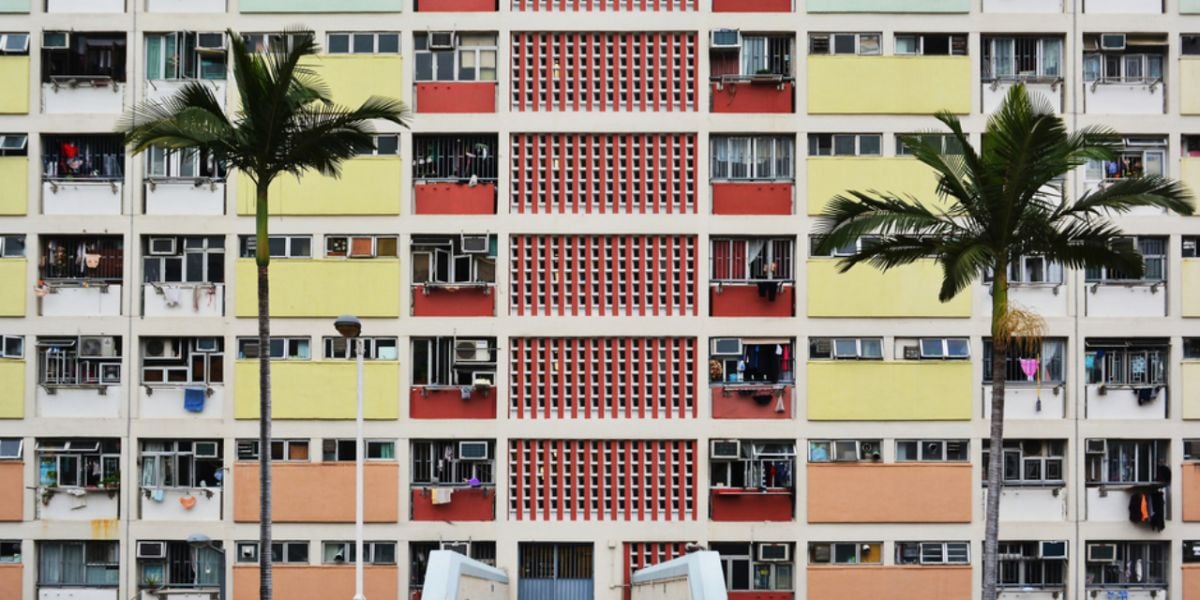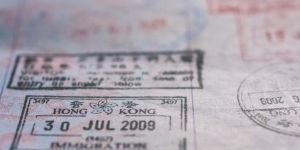
The housing market in Hong Kong is somewhat unique. The city's small territory, its large number of inhabitants and its attractive professional and investment environment have all resulted in a real estate market boom, which is affecting rental prices in the city to this day.
Hong Kong proudly holds the title of the most expensive city in Asia for expatriates to rent accommodation in. For example, a three-bedroom apartment in an expat-friendly neighborhood that is close to international amenities can cost you upwards of HK$70,000(US $9,000) per month.
While foreign professionals generally earn a good living in the city, most find these prices unaffordable in the long run. One of the biggest complaints for expats in Hong Kong is the small size of affordable accommodation — studios come with an area as small as 28 square meters.
Hong Kong neighborhoods
Hong Kong is divided into 18 districts, including some industrial areas and residential neighborhoods.
In Central District, you will mainly find companies, financial institutions and regional administrations. You will also find big luxury hotels and large residential complexes. It is a very popular area for expatriates due to easy access to essential services -— but also one of the priciest.
The Mid Levels is one of the most expat-friendly areas in Central. You will find international schools and easy access to popular nightlife spots here. Accommodation in The Mid Levels, located close to SoHo, comes with upper-end pricing.
The most expensive residential area in the district is The Peak, boasting stunning views and mostly built-up with villas and standalone houses — living here puts you right in the lap of luxury. Repulse Bay and Stanley are also considered pricey but are popular with expats thanks to their proximity to beaches. You can find cheaper accommodation in North Point and if you want to live in the center of urban activity, check out apartments in the high-rise buildings of Wan Chai.
West Kowloon is an up-and-coming residential area, only a ten-minute ride from Central Hong Kong, while Kowloon Tong is a quieter area, 20 minutes away from Central.
If you are looking to get away from it all — and save on rent while you're at it — explore the New Territories. With picturesque views and a laid-back lifestyle, the district is a nice alternative to the fast-paced city center. Consider the small fishing village of Sai Kung, the beautiful beach of Clearwater Bay, or the exquisite tranquility of Lantau Island.
Good to know:
Evaluate commute time when choosing your neighborhood. Living in the New Territories, for instance, will place you quite far from the city's central areas.
Types of accommodation in Hong Kong
You will find different types of accommodation in Hong Kong: furnished and unfurnished apartments and condominiums, multi-storey houses, villas, etc.
The one thing you may notice first about Hong Kong (when it comes to property) is the large number of high-rises. In fact, there is a very high chance you may be renting an apartment on the 40th floor — or higher.
Another unique feature of living in Hong Kong (as we've mentioned above) is that affordable apartments tend to be on the smaller side. It's not at all uncommon to find studios that are 20 sq. m. or less in the city. As accommodation is expensive, small studios are often the only option for those new to the city and looking to make some savings.
Apartment sharing is also a popular option for newcomers in Hong Kong. Check out local expat groups like Expat Hong Kong to connect with fellow expats and explore flat-sharing options in your area.
A lot of expats in Hong Kong choose to live in high-rise residential complexes. These are typically very modern and come equipped with a wide range of amenities: concierge services, pools, gyms, coffee shops and restaurants. These types of complexes also generally have reputable corporate landlords and hassle-free maintenance. A lot of high-rise residential are also located in commute-friendly locations: close to the MTR and popular bus routes.
Another skyscraper living option is needle towers. These only have one apartment per floor and often come with stunning 360-degree views of the city below.
If you are not comfortable with living on top of the world, consider accommodation in one of the mid or low-rise complexes in the city. These typically have 12 stories or fewer. They may not have the same level of amenities as the posh high-rise complexes — but you get a better sense of community and actually have a chance to get to know your neighbors.
Another popular accommodation type in Hong Kong is Tong Lau — or walk-ups. These are street-side residential buildings built without elevators — hence, the name. Long Taus are not much when it comes to amenities, but they generally have larger rooms than many newer apartment buildings. You will need to be ready to tackle a flight of stairs to get to your place.
Another accommodation option in Hong Kong are duplexes. These types of apartments are spread over two floors, come with high ceilings and let you easily separate living and sleeping areas. These are generally a good fit for families and young professionals looking for more living space.
If you are looking for even more space (and have the budget for it), consider a townhouse or a village house. Townhouses come in a variety of shapes and sizes and are ideal for families as they often offer a private outdoor space — which is very rare in Hong Kong. You will typically find townhouses in Hong Kong's suburbs — thus, having a car is often essential for an efficient commute.
If you are looking to get away from Hong Kong's signature hustle and bustle, consider a village house. These are located in small villages, often along the coast or close to nature parks and hiking trails. Village houses are a particularly great choice for those who love the great outdoors and don't mind residing farther away from the amenities of a big city. Note that most people living in village houses own a vehicle to get around.
If you are in Hong Kong for a visit and staying for a short time, you will probably be staying at a hotel or a serviced apartment. Note that cheap accommodation in Hong Kong gets booked fast — so it's best to search for a place to stay in advance. Serviced apartments are a nice option for those traveling to Hong Kong on business. These are a mix between a hotel room and an apartment and come with lots of useful amenities such as daily cleaning, security, help with running errands, and more.
If you are staying in Hong Kong for the long term, your choice of accommodation will be primarily guided by budget considerations. As mentioned earlier, Hong Kong is a very expensive city to rent in. If you are looking for lower prices, venture further away from the city center or consider renting a small studio — a popular type of accommodation in Hong Kong.
Rent prices in Hong Kong
Rent in the city is notoriously high. Naturally, rent prices vary depending on the neighborhood, size of the place, furniture, equipment, comfort level, and so on. As mentioned above, accommodation is the priciest in Central Hong Kong, prices drop a bit in Kowloon, and the New Territories are where to look for a bargain, but further away from the city.
The minimum monthly rent in Hong Kong starts at about HK$5,000. However, finding a place at this price will be very complicated and will take you to faraway areas and into small old apartments. To rent a more or less nice studio or room in a good apartment in Hong Kong, you will need at least HK$10,000 per month. There are also studios and one-bedroom apartments that cost upwards of HK$50,000 per month — these are generally located in fancy new high-rises close to the city center.
Monthly rent in larger apartments (80 square meters/900 square feet) can cost up to HK$25,000-HK$40,000, depending on the area.
Good to know:
Utilities and management fees are paid separately.
Looking for accommodation in Hong Kong
The best way to find accommodation in Hong Kong is through a real estate agency. This will save you a lot of time and will allow you to find a place most suitable for your requirements. However, agent fees apply. You can easily find a real estate agent online. Plus, a lot of real estate agency offices are conveniently located next to popular residential complexes.
You can also run a search for available rentals online using websites like 28hse, AsiaExpat, 591, and others.
Buy or rent in Hong Kong?
As we've emphasized throughout this article, property prices in Hong Kong are very high. Yet, if you are planning a life in this city, you may eventually start asking yourself whether it makes sense to purchase property instead of renting. Here's what you should consider:
Renting is generally a more popular option with both expats and locals — mostly due to high property prices. For expats, it also offers more flexibility in case they would be relocating to a different country. If you are in Hong Kong for a limited time, renting is the option that makes the most sense.
With that, if you've chosen Hong Kong as your new home, you may be looking into purchasing property.
Buying your own place in Hong Kong comes with several advantages.
First, you will have the stability that comes with owning the place where you live. And as rent prices in Hong Kong tend to increase every year, you will be making a smart financial decision in the long term.
Purchasing property in Hong Kong can also be a good investment. According to Property HK, homes in the city appreciate by 4% to 5% per year, on average. In fact, homeownership is one of the most common ways to accumulate wealth in Hong Kong. Quite often, property owners can resell their homes at a higher value. Or, with high and increasing rent prices, they can rent out the property they own, making it a stable source of income.
Unfortunately, if you are an expat looking to buy property in Hong Kong, things are not particularly easy.
First, you will need to invest considerable time and effort into understating the Hong Kong property market: land value, purchase regulations, best living locations, etc.
Second, getting a bank loan in Hong Kong as an expat will be complicated — especially if you have a limited financial history in the region.
If you do decide to purchase property in Hong Kong, make sure to consult a real estate lawyer before signing any paperwork.
Lease agreements in Hong Kong
Once you've found a property to rent in Hong Kong, you will need to sign a rental contract.
Here are several best practices to follow:
- A lot of lease agreements in Hong Kong are written in English, especially when expats are involved. If the lease agreement is in Chinese, make sure to get a trustworthy translation for the document. Never sign a contract that you don't fully understand.
- Keep an eye out for special lease terms. Some lease agreements will include clauses on the tenant's responsibility for repairs, a sub-letting ban, a pet policy, etc. Make sure you understand all the clauses in the lease agreement before signing it. If you believe some clauses to be unfair, you can always bring this up with your landlord or real estate agent and negotiate the details.
- A lease in Hong Kong is typically signed for one to two years. Note that if you want to end the lease before it expires, you will need to submit a written notice — typically, two to three months ahead.
- When signing the lease, you will typically be asked to pay a one or two months deposit. Make sure to get the amount and the date when you pay the deposit in writing. Your deposit will be returned to you when your lease ends.
- A lot of properties in Hong Kong come with other expenses in addition to rent. These include management fees, cleaning and security fees, maintenance, air-conditioning — and so on. Check what expenses are included in your rent payments and what you will need to pay separately.
- If there is anything that seems wrong in the lease you are about to sign, point it out to your agent or landlord. If you feel uncertain, consult a real estate lawyer.
We do our best to provide accurate and up to date information. However, if you have noticed any inaccuracies in this article, please let us know in the comments section below.








